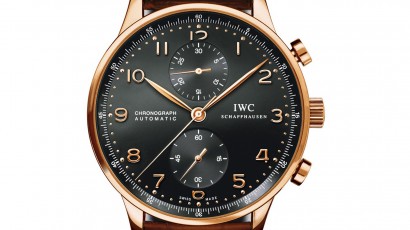
Watch Snob: Do Some Watches Tell Better Time Than Others?

IWC
“The only benefit I see to a watch being made of wood is that it can be burned.“
Cash Grab Or Worthy Investment?
Hi Snob,
I am looking at several different watches in the $8-$10K retail range. One Corum model has the features that I want. Yet for virtually the same price, but with less features, they have a certified chronometer. Is there real value in a certified chronometer, or is it just a cash grab?
Unless you’re planning a solo circumnavigation of the globe without the use of GPS, chronometer certification shouldn’t be reason to part with more money. And even if you are, you’ll probably still be OK without it, give or take a few hundred nautical miles.
The fact of the matter is, punctuality is a religion to the Swiss, and the chronometer certification institute is like the Vatican. But there are plenty of blaspheming watch brands, from IWC to Patek Philippe, that don’t submit their timepieces for chronometer certification (and just find other reasons to charge more) but still keep time as well or better than those brands lined up at the church door.
Modern engineering and manufacturing means that it isn’t as hard as it used to be for a watch to keep time to within minus-four to plus-six seconds per day. Even a well-adjusted low-end ETA movement can achieve this, and, frankly, I think you should expect this sort of performance out of any watch you buy these days, especially one in the price range you’re looking in, whether certified or not.
The Slimmest Watch In The Universe?
Dear Snob,
I was recently browsing the internet and came across an article showing me a watch from an Indian company called Titan, which makes a watch it claims to be the slimmest watch in the universe called Titan Edge. Apparently the watch uses quartz movement designed in-house, is only about 3.5 millimeters in thickness and the movement is only about 1.5 millimeters in thickness. What is your take on this watch? Does it mean that the rest of the world is catching up with Japanese quartz movements?
Quite a claim — “slimmest watch in the universe.” Has India done some pioneering space travel while I wasn’t paying attention? Frankly, I also don’t pay attention to quartz watches, and 3.5 millimeter is just barely more svelte than some Piagets, Vacherons and Jaegers, which measure somewhere between four and five millimeters. These are truly remarkable, since they make use of beautifully decorated mechanical movements. But if that is considered “catching up” with Japanese quartz movements, it is a dubious achievement at best.
Question from a Watch Knob
I am a graduating high school student with (sadly) no steady source of income. I recently developed an interest in watches after receiving a Seiko Solar for an early Christmas present. I wanted to know of your opinion on wooden watches, such as the ones made by Tense and WeWOOD, which seem to be the leading brands. I don’t have the money to afford a real timepiece, but I would still like to have some originality in my future watch. Please advise.
My advice? Find a job or a rich benefactor and get a proper timepiece. There are plenty of fine vintage watches with real character and pedigree that you could buy instead of these gimmicks, and they won’t warp or get eaten by termites.
The only benefit I see to a watch being made of wood is that it can be burned, which is what you’ll be also doing to your meager means if you buy one. Anyone got a match?
Watch Snob’s Free Newsleetter
Thanks for subscribing!